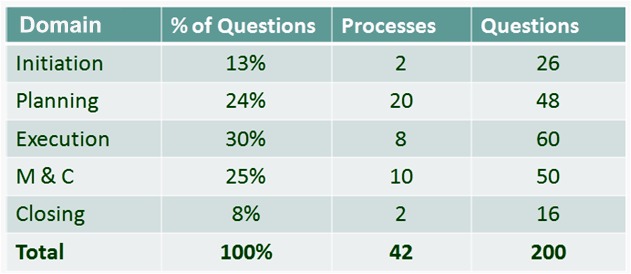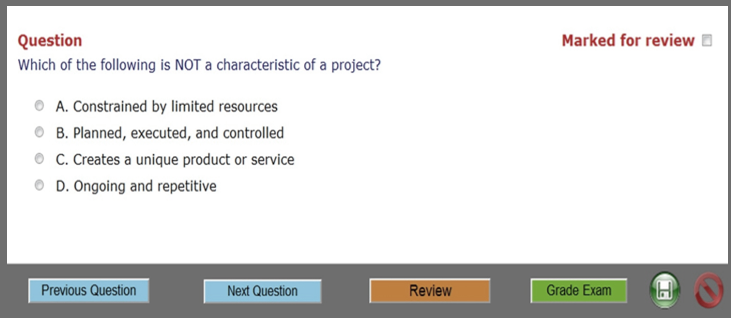- What is PMP® Certification
- Why PMP® Certification
- Who are Eligible for PMP®
- PMP® Exam Format
- PMP® Exam Changes
- PMP® Exam Tips
- Courses Offered
Useful Tips and Tricks on PMP® Exam

- The PMP® certification examination is a computer-based exam that is offered at PMI® locations in the United States, Canada and other countries worldwide.
- Since the exam is computer based, participants can find out their score by reading the detailed report on performance on completion of the exam.
- Questions on the PMP® exam are grouped by project management processes.
- Remember, you have only 80 seconds for each question. If you do not know the answer for a question, mark it and move on and revisit it later if you have time.
- Answer the questions based on the PMBOK® concepts first and then consider your experience. If they are in conflict, the PMBOK® wins.
- When answering a question related to what the project manager should do in a specific situation, you should rephrase the question to: What is the first thing the project manager will do given such a situation and given his or her proactive nature?
- PMI® does not approve adding extra functionality without benefits or gold plating.
- There are certain questions that contain extra information. This information is irrelevant to the correct answer. Beware of such questions and remember that it is unnecessary to use all the information provided to answer the question.
- Each question has only one correct answer. You have to select the most appropriate answer. Beware of choices that represent true statements but are not relevant. Be sure to read all the options before you select any one.
- You need to answer the questions from a PMI® perspective - not from your own perspective, which you acquired through experience. Remember that PMI® is trying to present an ideal environment for project managers that might be different from your own experience.
- Beware of answer choices that represent generalizations, which may be characterized by words such as always, never, must, or completely; these are often the incorrect choices.
- Look out for choices that represent special cases. These choices tend to be correct and are characterized by words such as often, sometimes, may, generally, and perhaps.
- The correct answer may not be grammatically correct.
- Visit the exam center several days before the exam and become familiar with the area.
- Take proper rest 2-3 days prior to the exam.
- Stay calm during the exam in order to recollect and reflect on what you studied in a cool frame of mind. Take break one or 2 times during the 4 hours exam.
- Always choose the best answer for all the possible right answers and eliminate those that are wrong.
- You should memorize all formulas, especially the Earned Value and PERT.
- Practice eliminating the completely implausible options first. Since there is no penalty for guessing; thus, do not leave any question blank.






